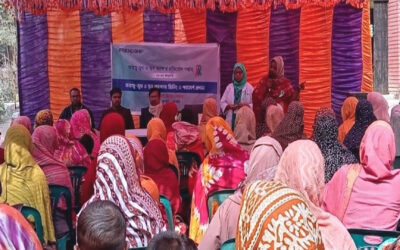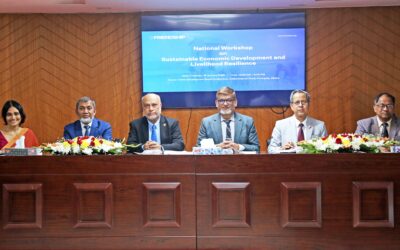Naushad Ali Husein’s cream cheese bagel turns bitter in his mouth

It shouldn’t be so easy to forget the story I just heard.
An hour ago, I was seated around a table of people trying to keep their emotions under control as a birth attendant told us her survival story. It’s not a story I’d like to repeat, but I’ll say that it involved the kind of unspeakable brutalities you have a good chance of hearing if you spend some time in Ukhiya, Cox’s Bazar, where 700,000 Rohingya people have arrived, mostly in the last two years, fleeing genocide across the border in Myanmar.
But just now, I heard myself thinking—in this comfortably air-conditioned café, with nice incandescent lighting and large windows and a warm, welcoming smell of coffee—that my bagel wasn’t toasted quite to satisfaction. I would have preferred it a tad darker. As soon as the thought formed, I caught myself – wondering how the profound suffering of a woman could so easily have just slipped out of my mind to be replaced by such trivial concerns.
I’m quite sure that the ability to temporarily forget trauma is what keeps the Rohingya camps functioning. Like Latifa Begum, the birth attendant, survivors are happiest when they’re occupied, their minds far away from the past.
Development workers, too, need to forget the trauma they encounter, and let the weight of the problems they hope to address slip from their shoulders when they leave the camp. It’s what keeps people in sound health, and enables them to come back to work the next day.

The Dhaka-based coffee chain North End probably recognized this need in the large number of development workers, many of whom have very European tastes, when it opened this very shop I’m sitting in, feeling guilty to be surrounded by such coziness.
Perhaps it’s justified to temporarily slip out of the discomfort of the muddy roads, cramped shelters, traumatic stories and hopelessness of the camps I’ve just left. But this level of comfort makes me fear that I might lose whatever small connection there is between me, with my privilege, and the people whom it is my job to serve. I might lose whatever ability I have to relate to the everyday lives of our beneficiaries.
We make decisions that affect real people and we represent their worlds and their stories with our words. Speaking from this world, which they might inhabit in their dreams, I wonder what justice we do them.



